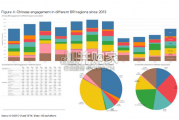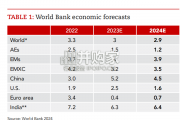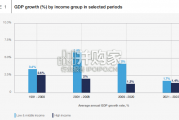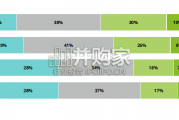China’s financing and investment spread across 61 BRI countries in 2023 (up...
2024-02-27 30 英文报告下载
The impending upheaval in Chinese family structure is by now essentially unstoppable; a new family order is all but inescapable for China’s rising young generations. Because their parents had fewer children and they had fewer siblings, their children will necessarily have few aunts, uncles, and cousins. This upheaval promises to be massive in magnitude, replete with far-reaching reverberations—and is coming surprisingly soon. Why has such an enormous, and potentially revolutionary, demographic change gone overlooked by China’s formidable cadre of academics, researchers, and advisers—and their overseas counterparts? The answer unfortunately is obvious. Beijing simply does not collect information on family structure or kinship networks—so the regime does not think about the issue and its implications. They plan for fewer people, not fewer nieces. Such oversight is hardly new, nor is it peculiar to China.
Standing governments have never regarded data on family as relevant to statecraft or security. Empires and states have been conducting censuses for thousands of years—the earliest of them in the Mediterranean and China. But in antiquity, these population counts were designed for taxation and military mobilization—thus, the focus on households and head counts. That ancient design still informs modern statistical authorities everywhere. Although their techniques for surveying populations may be vastly more sophisticated nowadays, and although the sheer volume of demographic data at their disposal may likewise be exponentially greater, modern governments the world over still fail to ask for information about kinship from their citizens and subjects—and thus do not obtain it. Outside those working with the closely guarded population register data in some Scandinavian countries, who must apply clever approaches to enumerate kin, the kinship systems linking whole societies remain unseen.

标签: 英文报告下载
相关文章

China’s financing and investment spread across 61 BRI countries in 2023 (up...
2024-02-27 30 英文报告下载

Though the risk of AI leading to catastrophe or human extinction had...
2024-02-26 50 英文报告下载

Focusing on the prospects for 2024, global growth is likely to come i...
2024-02-21 95 英文报告下载

Economic activity declined slightly on average, employment was roughly flat...
2024-02-07 66 英文报告下载

Economic growth can be defned as an increase in the quantity or quali...
2024-02-06 82 英文报告下载

In this initial quarterly survey, 41% of leaders reported their organizatio...
2024-02-05 66 英文报告下载
最新留言